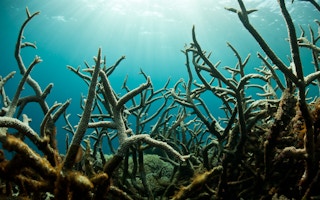Businesses should play a bigger role in helping to save depleted fish stocks as part of efforts to prevent irreversible damage to the oceans, a World-Bank backed report said on Wednesday.
The study, by 21 experts including government ministers, academics, conservationists and company leaders, said policies for protecting the oceans from over-fishing, pollution and climate change were often ineffective and fragmented.
It recommended more public-private partnerships involving companies, governments, local communities and others to protect ecosystems that are the main source of protein for a billion people, mainly in the developing world.
“A paradigm shift is needed in how we use and conserve ocean resources to address current inadequacies,” the report said.
The panel, set up by the World Bank, is one of several groups trying to find ways to deal with threats to the oceans. A separate Global 0cean Commission, for instance, is looking at how to safeguard the high seas, outside national jurisdictions.
There have been many failures despite past calls for action; a U.N. summit in Johannesburg in 2002, for instance, set a goal, set to be missed, of restoring world fisheries to health by 2015.
The 29-page report provides an outline for action for a group of 140 nations who have signed up to seek solutions to the problems.
“It is vital to have the CEOs of major seafood companies around the table,” Ove Hoegh-Guldberg, chair of the panel and director of the Global Change Institute at the University of Queensland in Australia, told Reuters by telephone.
He said that better management would make it easier to apply lessons from one part of the world elsewhere.
“The same problems that are occurring for coral reefs in Thailand are occurring in Tanzania,” he said. “This is about creating that platform where you could swap ideas and develop technologies as a global community.”
Irreversible change
Chris Lischewski, President and CEO of Bumble Bee Foods, North America’s biggest branded seafood company, said businesses were often wrongly seen as “the bad guys” in ocean management.
“Sustainable fisheries is key to our future,” Lischewski, who is also a member of Wednesday’s panel, told Reuters in a telephone interview.
He said Bumble Bee Foods, which has a turnover of about $1 billion, worked with conservationists, for instance, to ensure that the tuna it sells is only caught from sustainable sources.
And he said the company was working with countries including Fiji, Mauritius and Colombia and would soon announce a new partnership with “a group of coastal countries”.
Last week, an international report by a group of scientists also warned the oceans were suffering a “deadly trio” of threats from global warming, declining oxygen levels and acidificiation.
And a report by the U.N.’s panel on climate change said last month that land and ocean surface temperatures had warmed by about 0.9 degree Celsius (1.6 F) since the late 19th century, almost half way to a 2 C (3.6 F) ceiling set by almost 200 governments to prevent dangerous change.
Wednesday’s report did not look at costs of implementing recommendations. “Regardless of what we do, fish is going to cost more in the future,” Lischewski said, saying the world population was rising and many fish stocks were at maximum yields.










